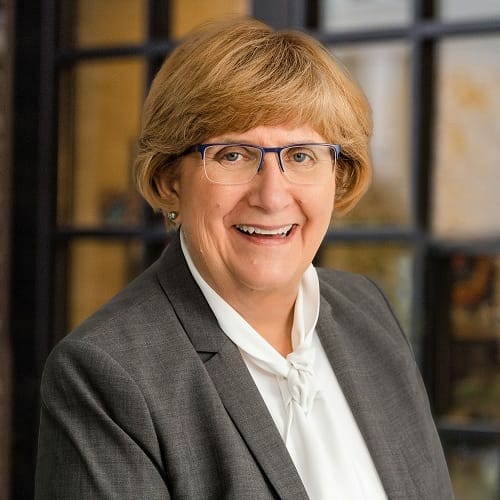
If you have a friend or a sibling caring for a parent or loved one with dementia, there are many ways that you can love and support them. A caregiver to someone living with dementia or Alzheimer’s is experiencing not only the daily demand of their care but also the personal loss and heartbreak as their loved one slips away. Often a caregiver is reluctant and too overwhelmed to ask for help. Letting them know you are there to support them is the first and best way you can help.
Here are a few specific ways you can support an adult-child or other family member caring for their loved one with dementia or other health needs.
How Can You Help?
1. Loss of Connection.
Many caregivers will experience loneliness, even though they are caring for a family member. At some point, their parent may become unable to contribute to or follow a conversation, less interactive with their caregiver, can’t recall memories or past events, less affectionate, uncommunicative, and withdrawn. Their parent-child, spouse or other, relationship can change dramatically leading to grief, frustration, guilt, deep sadness, and depression over their loss.
How can you help? The most important thing that you can do is to be present and available for the caregiver when they are in need. Give them a safe place to vent frustration, cry over the loss, or laugh to relieve the stress. Give them a hug, hold their hand, or rub their back—many caregivers miss the love and affection of their parent as they slip away. The sense of touch can be powerful and help fill the void that they may be feeling. Give them a gift certificate for a massage or a manicure or pedicure to relax in a healthy and comforting way. If they are experiencing depression, support them by helping to research professional help for their situation and finding support groups in their area.
2. Experiencing a Change in Roles.
As the adult-child settles into their new role as caregiver for their parent, they will notice a significant change in their traditional roles. This can be unsettling and frustrating to emotionally handle as they become responsible for the care and decision-making for their parent. And as their parent’s health declines, the caregiver will need to take on more and more of their personal daily tasks—paying bills, managing the house, driving, cooking, household chores, and more. The role reversal should not be underestimated, and it can cause a toll on the mental health and stress of a caregiver as they adjust to their new reality.
How can you help? Provide the caregiver with help planning and organizing the logistics of caring for their parent. Do whatever you can to roll up your sleeves and relieve their burdens like offering to drive, wash dishes, tend the garden, or grocery shop. These errands may seem like small tasks, but for an overwhelmed caregiver, it can make a significant difference in their stress level. If you do not live in the same city as the caregiver, offer to help them with researching online local health specialists in their area, layout a spreadsheet to track expenses or a budget, or shop for and send groceries online.
3. Isolation from Friends and Family.
As a caregiver takes on this new role, they may be too overwhelmed juggling their own responsibilities to spend time with friends and family. They may even feel trapped at home and unable to leave their family member alone. And they might not be comfortable venturing out of the house with their parent’s unpredictable behaviors. The caregiver may become more withdrawn as memory loss progresses.
How can you help? If you are noticing the caregiver is becoming more and more withdrawn, make an extra effort to stay engaged with them. Contact the caregiver through regular phone calls, visits, text messages, and offers to help. You will need to take the initiative to contact them and make suggestions on ways that you can support them. Once you find the best ways to help, it will be met with gratitude and relief. If the caregiver is a member of your family, family members should rotate their visits and keep track of the needs of the caregiver. And remember to continue offering support for the duration of caring for their parent.
4. Caregiver’s Health.
The daily stress and burden of caregiving can adversely affect their health and sense of well-being. Caregiving can be all-consuming both mentally and physically. Research has shown that caregivers can experience higher blood pressure, increased odds of heart attack, and a decreased immune function. Caregiving can be exhausting. It’s difficult for caregivers to admit that they need help.
How can you help? One of the most generous gifts to give a stressed caregiver is a break. Offer to care for their parent or loved one with dementia, so the caregiver can go do something nice for themselves. Your dedicated time taking on the caregiver role may be the greatest gift that you can give. Seeking help is healthy and reasonable for a caregiver. It can feel decadent, but this would be an excellent opportunity to get their own health needs met by going to a medical appointment, visiting with friends, scheduling a massage, or meeting a chiropractor.
If you recognize the caregiver needs a longer break recommend a short term stay at a local assisted living community. Offer to do the initial research for them and even schedules tours. A short term stay can be a couple weeks up to a month and will give the caregiver the much deserved break they need, while offering peace of mind that their loved one is getting the attention and care they need from highly trained professionals in a friendly, welcoming community.
Although most caregivers are grateful to be able to assist their loved one, it can be emotionally and physically exhausting. Caregiving can be fraught with emotional hurdles, financial pressures, uncertainty about the future, health scares, and caregiver burnout. Many caregivers will not ask for help or don’t know how to reach out for assistance. Be there for the caregiver as a shoulder to cry on and resource to draw from.
